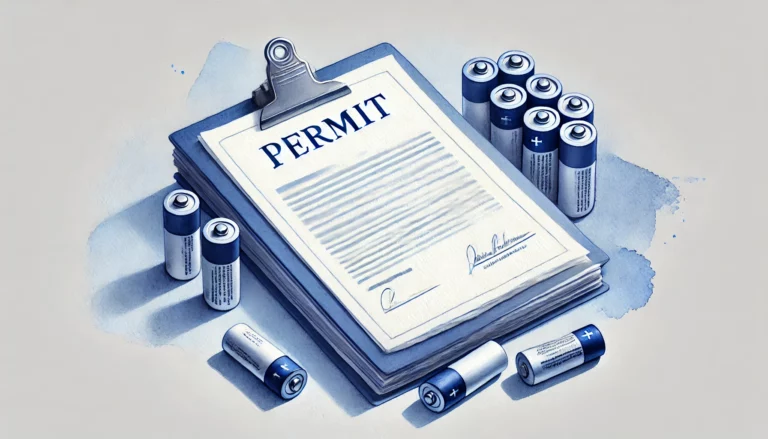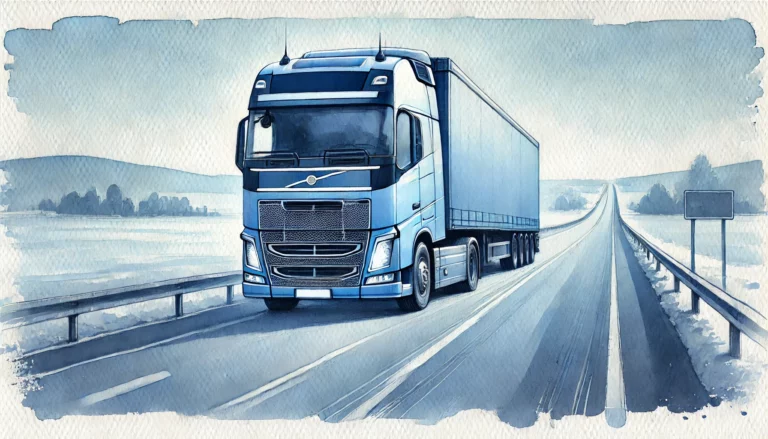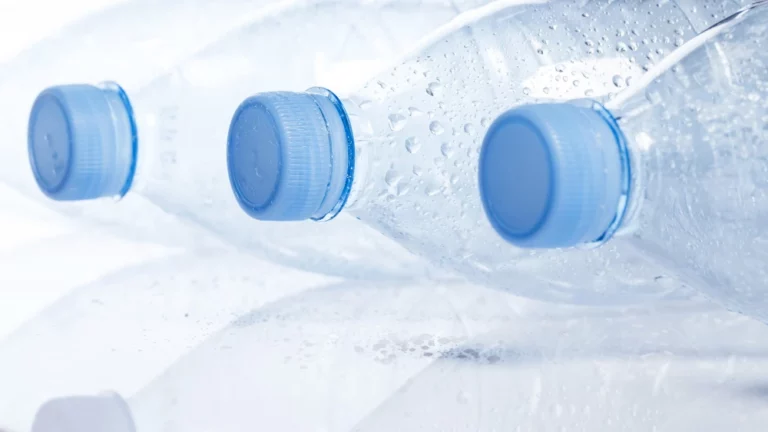How to find reliable waste carriers?
Be it a household or another enterprise, with a reliable waste carriers, you can be guaranteed that your waste will be handled accordingly. They should collect, transport, and sometimes even dispose of the waste in an environmentally-friendly manner, ensuring the process really promotes protection of the planet and keeps you in compliance with local regulations. The paper would, therefore, look into the background issues that would form the basis of selecting an appropriate and reliable waste carrier, mainly based on license consideration and service quality and environmental responsibility, among others.
Legal requirements for reliable waste carriers
Understanding waste carrier licences
It is always required that one confirms a valid waste carrier licence from a carrier before hiring their services. Such a document signifies that the carrier is authorized to collect and transport wastes. Similarly, in many countries, carriers of wastes are required by law to be registered with an environmental agency. You may want to check that they’re properly registered.
Environmental agencies confirming waste carrier credentials
You can check licensing credentials of waste carriers on your local environmental agency’s website. Most agencies make public databases available that you can use to check whether a given waste carrier is properly licensed. This would help ensure you are working with a real service provider to avoid bad or improper waste disposal.
Importance of compliance with local and national regulations
An efficient waste carrier has to address all regulation about waste management both at the local and national level. Such regulations include those which explain the best way of collecting, transporting, and depositing the waste. If found to be in non-compliance, the organization and the client are forced to pay tremendous fines. Thus, it is crucial to ensure your carrier is in compliance with all legal requirements.
Type of waste carriers
Domestic and commercial waste carriers
Generally, waste carriers deal either in domestic or commercial services. Domestic waste carriers operate within residential areas, taking care of the collection of waste from households, recycling materials, and, at times, garden refuse too. On the other hand, commercial waste carriers deal with large quantities of waste emanating from businesses, construction sites, and industrial facilities. It is critical to understand what kind of waste your business produces since this will guide you toward the right carrier that you need to hire in light of your specific needs.
Hazardous versus non-hazardous waste carriers
Some of this waste will require special handling. Hazardous waste carriers deal in chemicals, medical waste, or industrial by-products that could pose health risks. Carriers handling hazardous wastes must be specially trained and equipped to handle such material for disposal safely. Waste carriers who deal with non-hazardous wastes handle everyday garbage: food waste, recyclable materials, and general trash.
How to check the reputation of a reliable waste carriers
Online reviews and customer testimonials
When a search is being made for an appropriate carrier who can be relied upon to deliver as promised, make use of online reviews and testimonials by previous customers. Look for repeated comments in regards to the carrier’s punctuality, professionalism, and quality of service. However, take note that some of these might be biased, so it’s helpful if you read across different platforms.
Industry cccreditations and certifications
Waste carriers with industry accreditations, such as ISO certifications, are demonstrative of commitment to maintaining high standards. Often, a certification will suggest that the carrier follows recognized best practices in managing waste, protection of the environment, and safety.
Word of mouth recommendations
The carrier recommendations may be sought from friends, colleagues, or neighbours. A personal recommendation often may give valuable insights about the carrier’s reliability, the quality of service, and customer care. Good waste carriers build up their businesses based on a good reputation as customers recommend them to others.
Assessing the reliability of waste carriers
Reliability in service delivery
Through it all, a good waste carrier is one that keeps its promises. This can be from the level of collecting small domestic waste to handling big commercial disposals. The carrier should not deviate from a schedule that has been pre-agreed upon. At the same time, reliability will make sure any issues arising during the serving are promptly responded to.
Reliability in pickups
One of the most common complaints submitted against waste carriers involves missed pickups. To avoid this, you need to ensure that the carrier has a clear schedule and that it adheres to this. A very good waste carrier would normally give you room to revise pickup dates in case you would need to do so.
Safety record in handling waste
It’s about asking what record does the carrier has regarding waste disposal responsibly by ensuring that it goes to authorized facilities using environmentally friendly ways. Reliable carriers have openness in their operations regarding the issue and provide answers to all your questionings.
Environmental responsibility and sustainability
Green-certified waste carriers
Many waste carriers today attempt to work greener. Green certifications involve carriers that follow environmentally friendly practices, including holding landfill waste to a minimum, facilitating recycling, and using fuel-efficient vehicles. These carriers help reduce your environmental footprint and contribute positively towards the call for modern sustainability.
Practices to reduce environmental impact
Likewise, ask a waste carrier for their pattern of minimizing environmental damage. The good practices that a good waste carrier will emphasize are recycling and reusing the wastes, which reduce the total volume of wastes being sent to the landfills.
Recycling and reuse policies of reliable waste carriers
A good carrier of waste should have clear policies regarding recycling. They need to segregate materials that can be recycled from general wastes and must take care that such items as plastics, metals, and paper are treated correctly. This may include separate bins or containers provided by some carriers for different types of wastes that can be recycled, thus helping you to a great extent to assure environmental sustainability.
Waste disposal methods employed by carriers
Traditional landfills vs modern alternatives
Not all the carriers of wastes have the same procedure in disposing of or getting rid of them. The conventional landfills, relied on by some, are said to contribute to the pollution of the environment whereas other modern alternatives include the centers or plants meant for recycling the trash and converting it to energy. These latter options may not be as harsh on the environment and reduce the overall adverse impact of the waste disposal.
Incineration with energy recovery
Some of the waste carriers use incineration, that changes waste into energy. This can definitely ease the load of landfills but does need strict regulation to keep away harmful emissions. These waste carriers generally follow very stringent environmental rules and regulations.
Composting and organic waste processing
Composting is an environmentally friendly form of organic waste disposal, such as food wastes or refuse from the garden. Various waste carriers would offer composting services that turn organic wastes into nutrient-rich soil, hence making them reusable either in agriculture or landscaping. It is a very good option to reduce your waste footprint by choosing a carrier offering composting.
Health and safety standards of a reliable waste carriers
Safety protocols in handling hazardous wastes
Waste carriers who deal in hazardous wastes should have tight safety measures. They have to use tight containers, accompanied by protective gear to prevent leakage or other forms of contamination. This would ensure the safe transportation and disposal of such wastes, with minimal risk to the health of the workers and members of the public.
Training and certification of employees
A waste carrier is only as good as the people behind it. For that reason, the employees have to be very well trained in the processes of waste management, safety precautions, and environmental regulations. The responsible carriers invest in a continuous training program to keep their personnel current with the best practices. Look for carriers with certification that express commitment to safety and professionalism.
Compliance with the standards of occupational health
Proper waste carriers follow all occupational health and safety standards that include guidelines on how to keep their employees safe from any workplace hazard. The fact that the carrier follows such standards guarantees them operating within a safe work environment and, therefore, offering quality services.

Pricing model and price transparency
Flat rate vs. per-ton pricing
Waste carriers have standard pricing mechanisms, either at a flat rate or per ton. Flat-rate pricing refers to a fixed rate for collecting waste irrespective of the volume, while the per-ton pricing system refers to the collection of the services of a waste carrier based on weight. This will help in your selection of carrier on the pricing and service you can afford.
Hidden fees to watch out for
This is the reason it is always important to make sure that all the costs are initially pointed out, and there is no chance of any hidden fees. Sometimes, the extra cost could be in handling waste types, such as hazardous ones, or even in extra pickups. Always ask for a breakdown of costs before signing a contract so you know what to expect.
Importance of estimates of costs upfront
A reliable waste carriers will also provide you with clear, upfront estimates. They should be able to give a breakdown of what services they provide, how much they charge for those services, and if any additional charges may apply. Such transparency will help you not only plan your budget but will also reflect professionalism and integrity on the part of the carrier.
How available is it? Customer support
24/7 service availability and support
It means wastes will pile up much faster for a company or factory. But having a 24/7 waste carrier assures you that your wastes will be collected just on time and you will not have the risk of spilling over from the bins or workplace accidents. A 24/7 available carrier may prove to be more useful in some emergency situations such as hazardous spills that may require immediate action.
Customer communication channels
Good customer service is what makes a good waste carrier. The company should offer multiple avenues of communication: phone, email, and online. Fast and effective responses to customer queries round up any loose ends in service that may arise from missed pickups to billing concerns.
Responsiveness to queries and complaints
A responsive waste carrier is one that will respond to an inquiry or complaint regarding problems associated with their services. This may be rescheduling a collection or addressing an issue with the service itself; whatever the nature of the interaction, it should be handled in a prompt and professional manner. Consistent communication breeds trust and allows for satisfaction in the long term.
Insurance and liability considerations
The insurance policies for waste carriers
Also, before hiring a waste carrier, do ask if he has insurance coverage. A good waste carrier would possess liability insurance to cover him or her in cases of accidents, spills, or damage during collection or transportation. This covers both himself and his clients.
Liability for waste management failures
You might be held liable in cases, whether legal or concerning the environment, if the waste were not disposed of or handled correctly for whatever reason. A good and credible waste carrier would offer liability coverage. This means protection against fines arising out of their actions, which puts your mind at rest that you are covered.
Protection in the event of accidents or spills
Waste management also presents some level of risk, especially if there is a need for the transportation of hazardous or cumbersome materials. Good carriers have insurance and an emergency plan to handle any accident or spill properly. The incident therefore gets to be attended to promptly with safety and the least environmental damage possible.
Understanding service contracts
Important clauses in the waste carrier contract
Read through the contract terms before sealing the deal with any waste carrier. Also, be aware of the agreement on the scope of service, price, method of payment, and when the contract would end. Good and reliable waste carriers would show transparency with the above-mentioned contract terms, explaining what is not comprehended.
Flexibility in the contract for long-term/short-term services
Depending on your needs, you might want a long-term contract for periodic waste collection. Or a short-term contract for one-time or occasional services. Dependable carriers allow flexibility in their contracts by offering the length of service you would need. Ensure there are terms for adjusting services accordingly in the contract.
Termination and renewal clauses
Pay attention to the contract’s termination and renewal clauses. Serious carriers of waste have clear conditions about how either party may terminate or renew the contract. That’s to avoid getting stuck in several-year contracts without a clear way out of the agreement. Understand these clauses from day one so that you are not surprised down the line.
Innovative technologies employed by the reliable waste carriers
Tracking through GPS for the efficiency of service
The modern waste carriers make use of GPS tracking, which is going to help in enhancing route efficiency and ensuring timely pickups. The carriers can, thus, choose an optimized route that would save fuel and reduce carbon emissions. Secondly, the clients can track their waste collection in real time.
Digital scheduling and payment platforms
Most licensed waste carriers by this time have developed online platforms where customers can make a booking of their collections, make payments, and also access their history with them. These online platforms make it much easier to handle your waste services in the comfort of your computer or even your mobile device.
Smart waste management solutions
Other examples include intelligent waste management where sensors in the waste bin alert carriers when it is full. Such benefits ensure that waste is only collected when necessary, which in return cuts down the frequency of trips and hence costs. Seek those carriers investing in such technologies since they are efficient and friendly to the environment.
Importance of local reliable waste carriers
Benefits of selecting local carriers
The benefits of selecting a local waste carrier are numerous. First and foremost, local carriers are better acquainted with the waste management rules and regulations in your area, hence more competent to ensure compliance. They can also respond faster and are more reliable for urgent or frequent pickups.
Faster response times and lower transportation costs
The advantage of proximity that the local waste carriers will provide enables them to respond faster and at reduced transportation costs. This means it reduces the overall cost of managing the waste besides reducing the environmental impacts brought about by long-distance travels. This also strengthens the economy of your community because you are supporting a local business.
Supporting local environmental initiatives
Besides, many local waste carriers are more involved in the regional environment management processes: they collaborate with local recycling centers or take part in community clean-up programs. By picking up services from a locally owned carrier, you’re contributing to those efforts and building a cleaner, more sustainable community.
Conclusion: key takeaways in choosing reliable waste carriers
Choosing the right waste carrier is a part of proper waste disposal, adherence to legal requirements, and environmental concern. Various factors emanate in making a choice for a reliable carrier, starting with checking licences and insurance to actually evaluating the service reliability and the environmental impact. Always research, question, and verify credentials until you’re satisfied with your decision.
Final tips to arrive at a well-informed decision:
- Licence/certification verification: Underneath, it’s always important that a carrier has necessary licences and proper certification.
- Recommendations: Personal recommendations provide a level of trust on the dependability of a carrier.
- Insurance: A carrier needs to have the necessary insurance to handle things such as an accident or spill.
- Environmental responsiveness: Prioritize carriers offering services with considerations of environmental responsiveness in waste management.
- Read your contract carefully: Before signing a contract, make sure you know the terms of agreement, price, and process of termination.
By considering these key factors, you will certainly be on your way to finding an appropriate and reliable waste carriers that best suit your needs. And when you consider all of the tips listed above, but still have doubts, we’ve prepared the database of the best waste carriers in EU. Hundreds of transport companies at your fingertips. Go to odpadytransport.pl if you want to deliver waste to Poland or visit wastelicencecheck.com for international deliveries.







